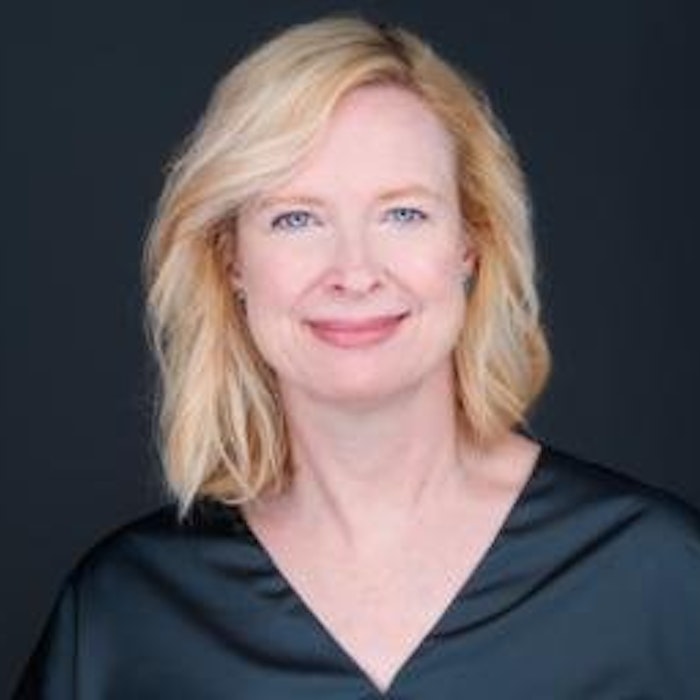Eleanor Esser Gorski is the CEO and President of the Chicago Architecture Center, the leading organization devoted to celebrating and promoting Chicago as a center of architectural innovation and education. Gorski brings to the role more than 25 years in architecture, historic preservation and urban planning; a passion for design as a way to create equity; and a wealth of deep experience and knowledge of Chicago, including appointments to key city leadership roles under three mayoral administrations.
Gorski, a licensed architect, has centered her career around equity and community, seeking to integrate design, planning and historic preservation to the greatest benefit of the neighborhoods in which she has worked. She brings that focus to the CAC, the largest organization of its kind in the world, which serves more than 700,000 patrons annually, is one of the city's top cultural attractions and has cemented Chicago's stature as the "City of Architecture." The CAC is known for the nation's no. 1 architectural boat tour aboard "Chicago's First Lady."
Through workshops, programs, competitions and mentoring, CAC works with thousands of students and families to inspire them through the power of design. Gorski brings a background in academia, program design and community engagement that will help to expand the CAC's popular educational platforms.
Previously, Gorski served as Director of Design and Planning for the University of Illinois at Chicago. From 2017 to 2020, Gorski led the City of Chicago Department of Planning and Development (DPD) as a member of the leadership team culminating in her role as Acting Commissioner. She led work on the City's Industrial Corridor Modernization Initiative and the Fulton Market Innovation District Plan, creating the fastest-growing commercial sector in the city. Gorski has held many other leadership roles within the City, including director of the Landmarks Commission for five years. Projects she has managed include the five-year renovation of Wrigley Field, the planning for the Obama Presidential Center, the renovation of most of the early skyscrapers in the Loop and the preservation of the Carson Pirie Scott State Street store (now Target).
Gorski's notable projects at the City of Chicago include the creation of a community review process for the Chicago Plan Commission and numerous design guidelines for city landmark districts and neighborhoods. Her work in financial incentive legislation provided groundbreaking assistance for small businesses in communities of need through the Neighborhood Opportunity Fund and helped to preserve landmarks with the Class L tax incentive.
In Gorski's most recent role as Executive Director of the Cook County Land Bank Authority, she helped to grow the organization's impact in alignment with the Land Bank's mission to power community-driven economic development in disinvested communities throughout Cook County. She made possible the redevelopment of numerous residential and multifamily buildings and helped drive forward major deals like the redevelopment of Woodlawn's Washington Park Bank and the CTA Red Line Extension Project. Under her leadership, the organization saw the redevelopment of its 1,000th home and grew community wealth creation to $156 million. A hallmark of Gorski's tenure was to develop and strengthen relationships with nonprofits, and in her role at CAC she will continue to build partnerships with like-minded organizations and change agents, such as the CCLBA and others.
Gorski is a fellow of the American Academy of Rome, where she studied the integration of new construction and old in Rome, Berlin and Amsterdam. During her career, Gorski has received widespread recognition, including the Rome Prize for Historic Preservation from the American Academy, AIA Chicago's Distinguished Service Award, the ULI Chicago Breakthrough Award, and recognition from C40 Cities Climate Leadership Group and Landmarks Illinois. She graduated Summa cum Laude from Penn State University where she double majored in Art History and History. She received her Master's in Architecture from University of Illinois at Urbana-Champaign. She is also a fellow of the Civic Leadership Academy at the University of Chicago's Harris School of Public Policy. Gorski sits on the Local Advisory Board of LISC Chicago, Urban Land Institute Chicago board, the alumni board of the University of Illinois School of Architecture and the Board of the Illinois Medical District. She is a proud mom to two teenage boys and lives in Chicago.
Speaking at
Thu Apr 11
10:00 AM — 10:20 AM (GMT-05:00) Eastern Time
New York Hilton Midtown - Level 3, Americas Hall I - Area B
The Interplay Between Transit Oriented Development and the 15-Minute City
Transit-oriented development (TOD) is now a mature concept in city building, having been applied in many cities around the world for well over two decades. In this discussion, Helene Chartier, director of urban planning and design at C40, Eleanor Esser Gorski, CEO and president of the Chicago Architecture Centre, former A/ commissioner of the City of Chicago, and Sander Mozo, planner at the City of Vancouver, reflect on the successes and shortcomings of the concept over the past decades. They discuss how the 15-minute city concept can help shape TOD for the better, areas where the two concepts may be at odds, and share their experiences in developing new models for TOD with a greater emphasis on connections to existing neighborhoods and community building.
Thu Apr 11
10:30 AM — 10:50 AM (GMT-05:00) Eastern Time
New York Hilton Midtown - Level 3, Americas Hall I - Area B
The Interplay between Transit-Oriented Development and the 15-Minute City Continued
Keep the conversation going on TOD and 15-minute cities! In this discussion, Helene Chartier, director of urban planning and design at C40, Eleanor Esser Gorski, CEO and president of the Chicago Architecture Centre, former A/ commissioner of the City of Chicago, and Sander Mozo, planner at the City of Vancouver, continue to discuss the successes and shortcomings of the concept over the past decades. They discuss how the 15-minute city concept can help shape TOD for the better, areas where the two concepts may be at odds, and share their experiences in developing new models for TOD with a greater emphasis on connections to existing neighborhoods and community building.








